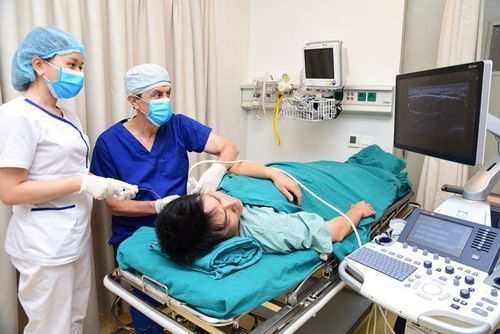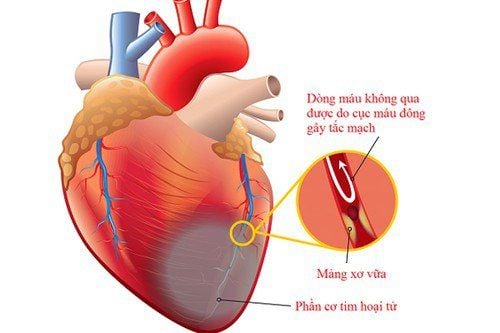This is an automatically translated article.
The article was professionally consulted by Specialist Doctor I Ho Quoc Tuan - Anesthesiologist - General Surgery Department - Vinmec Nha Trang International General Hospital. Doctor Quoc Tuan has many years of experience in the field of Anesthesia - Resuscitation.Early recovery after surgery ERAS is a method of patient care before, during and after surgery with multi-specialty coordination. As a result, patients get effective pain relief, early recovery and improved quality of life.
1. What is Early Recovery After Surgery (ERAS)?
ERAS is an acronym for Enhanced Recovery After Surgery (Early Rehabilitation Care Program) is the methods of patient care before, during and after surgery. Patients are consulted specifically about ERAS before surgery to confidently participate in the treatment process and postoperative care. Patients will be optimal nutrition, applied anesthetic regimen - analgesia standard.The goal of early recovery after ERAS surgery is to reduce the length of hospital stay, improve the quality of treatment, reduce costs and reduce complication rates for patients by maintaining the function of previous organs. surgery and reduce responses to stress, inflammation, and increased immunity after surgery.
ERAS must have the active participation of many specialties such as: Internal medicine, surgery, cardiology, nutrition, rehabilitation, respiratory - mechanical ventilation and anesthesia resuscitation must play a nuclear role. Applying ERAS results in a 30% reduction in care time and a 50% reduction in postoperative complications.
2. Components of ERAS

3. The role of ERAS in complex surgeries
Currently, the method of early recovery after ERAS surgery has been applied in colorectal surgery, gastric surgery, gynecological surgery, urological surgery, pancreatic surgery, hepatobiliary surgery, head and neck surgery. , bariatric surgery,... The role of this method for surgeries is:Colorectal surgery: Patients do not need to fast, do not need enemas, do not put drainage during surgery, Optimal infusion to avoid water-electrolyte disturbances, pain relief without morphine, only 1 dose of prophylactic antibiotics to avoid side effects. After surgery, during the day, the patient drinks water, milk, eats soft food, gets up after 2 hours. On the first day after surgery, the patient can give up fluids and eat raw, practice walking after 6 hours. ERAS helps to reduce complication rates, shorten hospital stay and reduce the risk of re-hospitalization; Liver resection: Reduce the rate of complications, reduce hospital stay and shorten the time of post-operative defecation; Abdominal surgery outside colorectal: Shorten 2.5 days in total hospital stay, reduce 0.8 days of post-operative defecation time, reduce overall complication rate and reduce treatment costs;
4. Where is the treatment for early recovery from surgery (ERAS)?

At Vinmec, ERAS method is applied to types of surgery such as:
Open heart surgery: Applying analgesia technique with epidural plane (ESP) under the guidance of ultrasound, helping to relieve pain after surgery, without causing complications, shortening the time of active resuscitation; Caesarean section: Anesthesia by ultrasound machine, do not use morphine to relieve pain after surgery even when the mother is active or taking care of the baby, cleaning the body,... In addition, the mother can also receive anesthesia of the lumbar squamous muscle on both sides and an epidural to help pregnant women give birth smoothly, without pain, discomfort, quickly recover health after surgery, bowel movements soon return to normal, no chronic pain after surgery; Cancer surgery: Applying robotic laparoscopic surgery technique, minimizing trauma, causing less pain, high aesthetics, reducing the need for pain medication after surgery, significantly shortening hospital stay , bring satisfaction to the patient. At Vinmec, most ERAS patients are discharged after 3-5 days after surgery instead of having to stay in hospital for 7-10 days as before. The reduced complication rate, shortened length of stay in intensive care, low re-hospitalization rate and reduced medical costs, etc. are benefits that cannot be ignored when choosing an early recovery program. after surgery.
Please dial HOTLINE for more information or register for an appointment HERE. Download MyVinmec app to make appointments faster and to manage your bookings easily.














